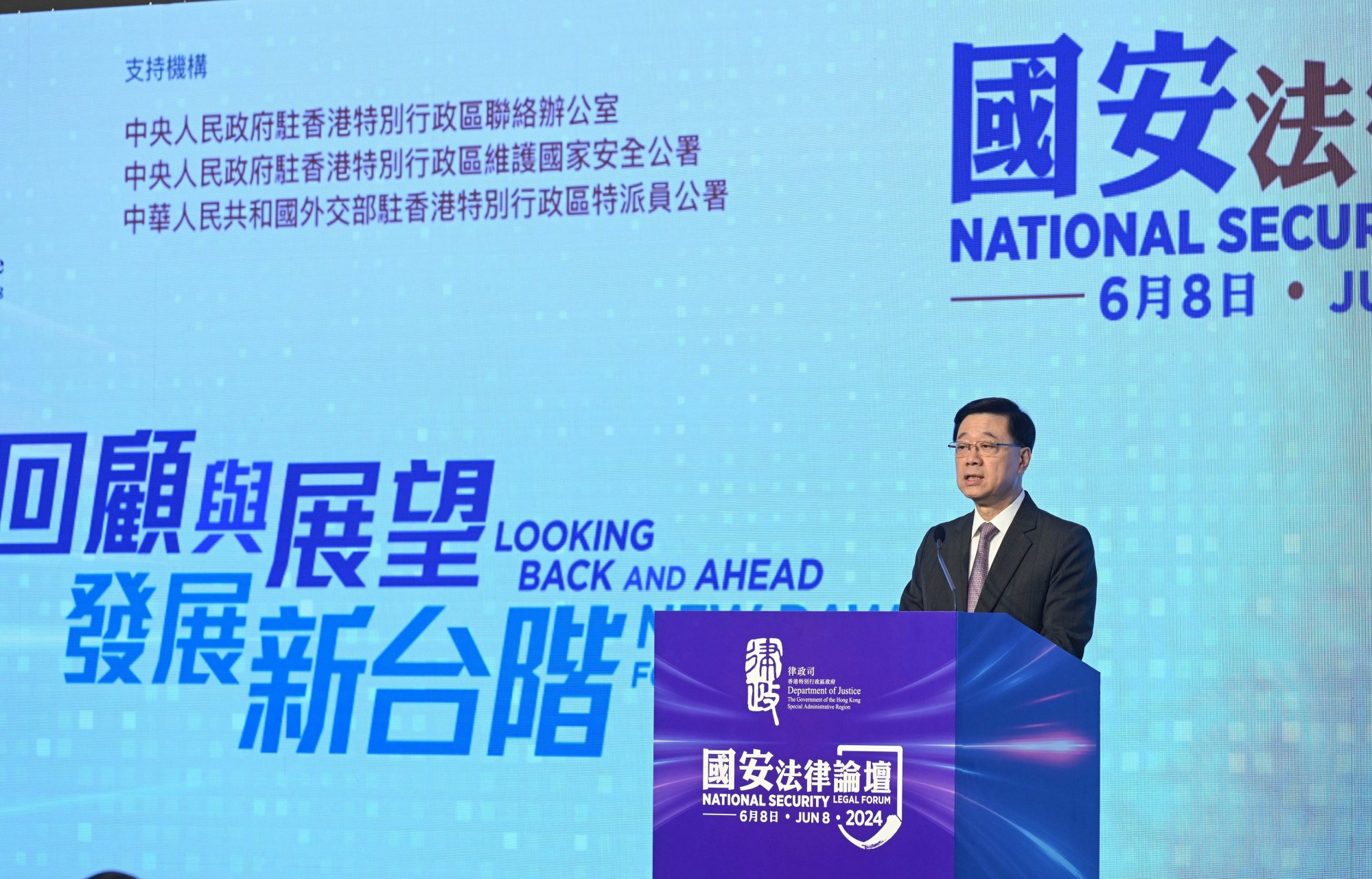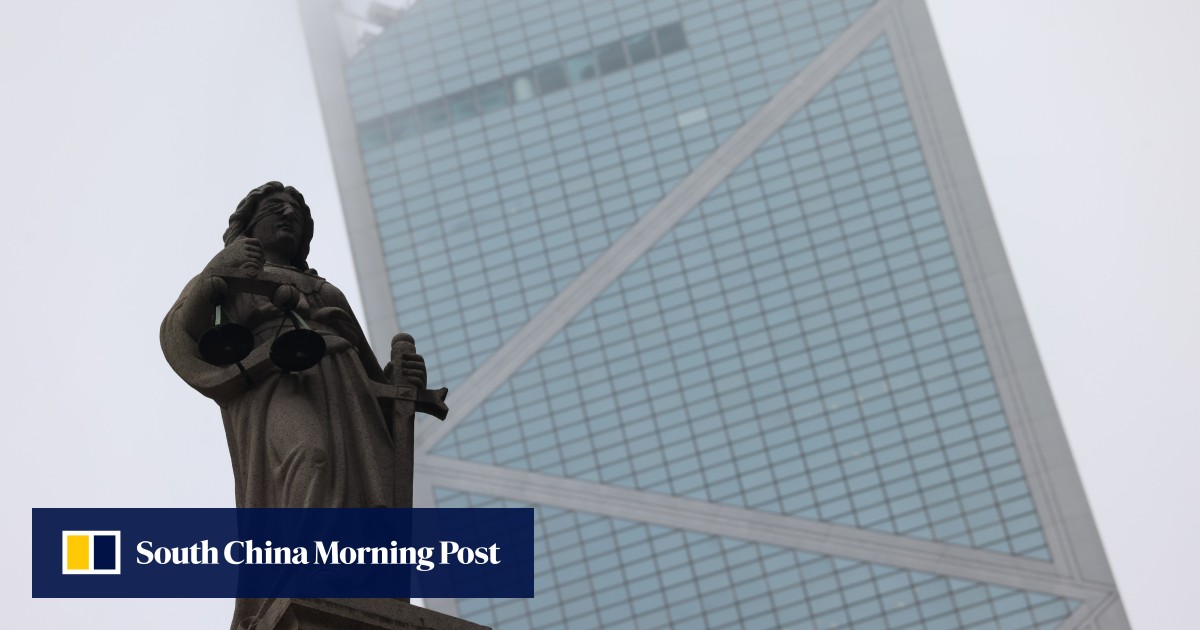The event was held to mark the coming fourth anniversary of the enactment of the Beijing-decreed national security law.
Nong emphasised the central government fully supported Hong Kong in maintaining its common law system and consolidating its rule of law advantages.
“The rule of law is a global brand of Hong Kong, and a shared asset that the country and all sectors in Hong Kong take pride in. It provides an important cornerstone for safeguarding the legitimate rights and interests of Hong Kong,” Nong said in a half-hour speech delivered entirely in English.
“Over the years, Hong Kong’s legal practitioners, including foreign friends practising law in Hong Kong, as well as Hong Kong’s law enforcement, prosecution and judicial institutions, have upheld the spirit and defended it.”
He said such people had “contributed to the dignity of the rule of law, and contributed significantly to the rule of law in Hong Kong”.
“Their work should not be interrupted. Their efforts should not be erased. Hong Kong’s rule of law should not be infringed, and its reputation should not be tarnished,” he said.
He made the assurances two days after two respected British judges, Lawrence Collins and Jonathan Sumption, resigned as non-permanent judges from the Court of Final Appeal.
The HKMAO official also stressed that the 2020 security law and the Safeguarding National Security Ordinance, passed by Hong Kong’s legislature in March, were meant to “accurately identify thieves and protect friends” rather than “lock up” the city.
He praised the city’s law enforcement, prosecution and judicial personnel for facing up to external sanctions and threats “with courage and professionalism”, as well as “filling the international community with confidence in Hong Kong’s rule of law”.
The ordinance, a domestic counterpart to the 2020 legislation, was required under Article 23 of the city’s Basic Law mini-constitution.
Nong, previously a former assistant foreign minister, was appointed to the office in February, with China watchers saying the decision was partly due to the geopolitical “hostilities” the city was battling.
Secretary for Justice Paul Lam Ting-kwok said Hong Kong courts had faithfully adhered to the fundamental principles of the rule of law under the common law system in applying the 2020 national security legislation over the past four years.
“There is absolutely no conceivable reason whatsoever why we would shoot ourselves in the foot by giving up these valuable and indispensable principles.”
Zheng, the director of the central government’s liaison office in Hong Kong, maintained that results were important in making use of the two security laws.

“It is not easy to make good laws and it is even more difficult to use them well … There is still a lot of work to be done by law enforcement and the judiciary,” he said at the event.
He added that effectiveness and deterrence held the key to implementing the two laws, noting that while police’s national security tipoff hotline had received “tens of thousands” of reports, “only 298 people” had been arrested over alleged offences.
Zheng urged city authorities to clearly grasp the legislative intention and improve the implementation mechanisms to target “various contingencies”, as he highlighted the laws’ effectiveness in preventing sabotage by external forces and cracking down on anti-China, troublemaking activities.
“The enforcement and adjudication of the laws must be strict to exemplify the dignity and practical effects of the laws. Justice in the outcome cannot be substituted by justice in procedure or execution, let alone the dignity of the law with compassion,” he said.
Chief Executive John Lee Ka-chiu, in his opening remarks, pledged to ramp up internal management and systems, and said his administration would pursue efforts to ensure all sectors of society would “never forget to prevent and stop behaviours and activities that are detrimental to national security in everyday life”.
The full-day forum also included expert panel discussions on the implementation of the two security laws as well as a sharing session by the justice secretary that targeted secondary school and university students.

